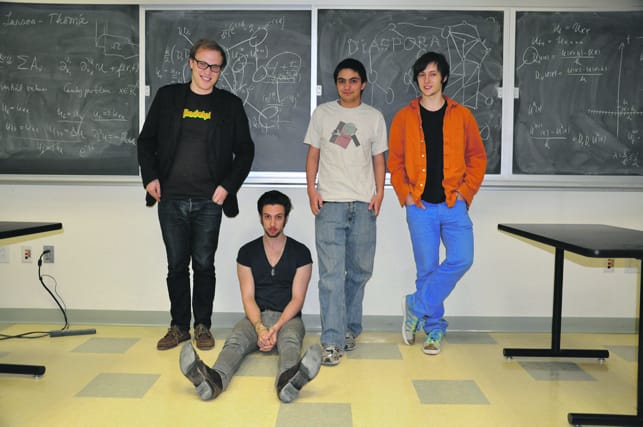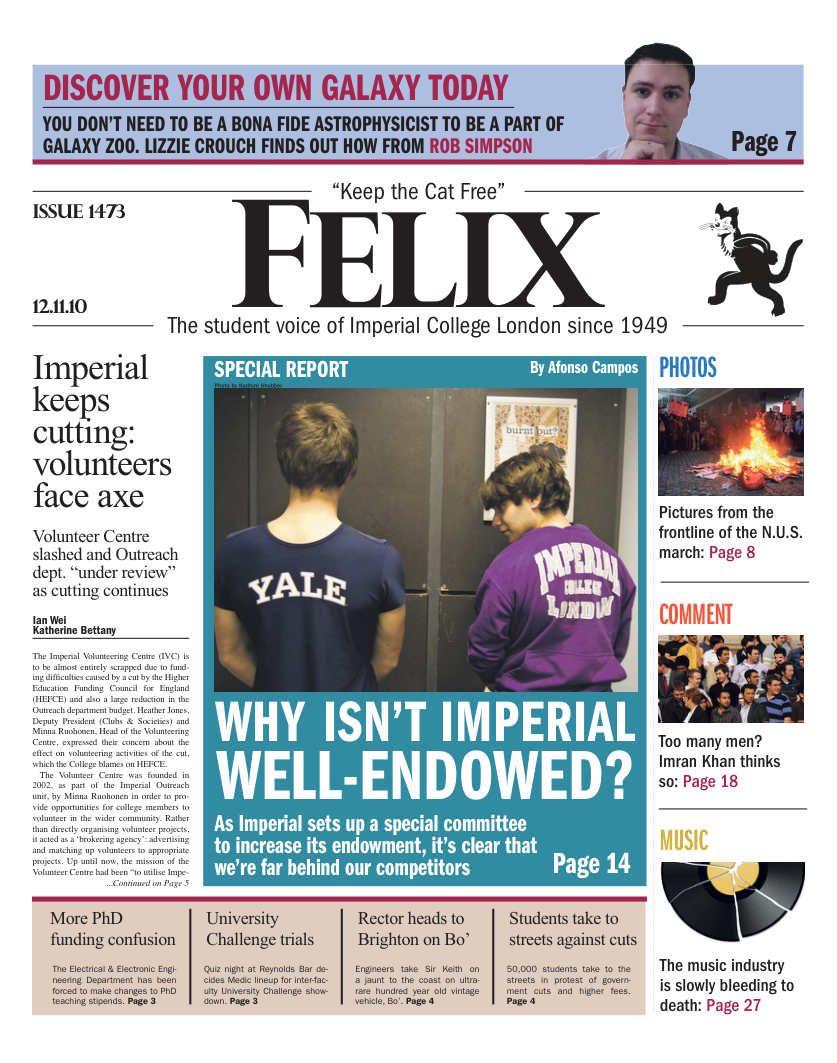Diaspora: social without the invasion
The privacy aware, personally controlled, do-it-all, open source social network

Diaspora is an open source social network built by four students at NYU’s Courant Institute; Daniel Grippi, Maxwell Salzberg, Raphael Sofaer, and Ilya Zhitomirskiy.
They had been inspired by a talk about freedom and ownership online, by Eben Moglenn, and focussed by the fact that the large social networks require us to sacrifice lots of our privacy for features that aren’t anything special. The project was published using Kickstarter, a funding platform for creative projects, in April 2010, with the team attempting to raise $10,000 by the 1st of June in order to begin work on it.
The four students persuaded more than 6000 people to contribute money to the project, making it the largest Kickstarter project ever, and managed to collect well over $200,000. This outpouring of funding instilled them with a strong motivation to get their idea off the ground and available to all.
The four Diaspora creators believe that privacy and social connectivity do not have to be mutually exclusive. The system they created allows users to create their own, personally hosted versions of Diaspora, called seeds, providing greater control of your information.
As Maxwell explains it: “Diaspora will give to every single person in the entire world the opportunity to install their own node within the network. This node is fully controlled by you. You can share and pass all the information you want. It’s completely yours and you can extend it in whatever you want to.”
A developer edition has already been released on GitHub, implementing many features. For Diaspora users, all traffic is signed and encrypted (except photos, for now), unlike Facebook and its HTTP issues. A seed connects to other services such as Facebook, Twitter, Flickr, and pulls information back to the local host.
At the moment Diaspora has all the features of a basic social network, although it lacks the level of interactivity of Facebook. Users can share status messages and photos publicly and privately, upload photo albums, add and manage friends across the Internet, no matter where their Diaspora seed is located. The really interesting thing is that it’s possible to customize your seed’s appearance and add new services and features, as the platform is open-source. For the developers amongst us, it is programmed using Ruby on Rails, MongoDB/MongoMapper, and GPG with full keychain support.
But the development team promises more to its users. In the near future, their plan is to implement data portability, which it will give users the ability to move their accounts to new seeds and notify all of their friends about the change. Furthermore, they want to use the browser’s language header to internationalise Diaspora, so it can be easily used in many languages. Plus an undo button (something akin to gmail’s undo send), private messaging, events and photo tagging are also in the todo list. Diaspora certainly shows promise, but like most open-source things, could stray into the geek-only, mainstream shunning side of technical know-how. If Diaspora is to succeed as Facebook has, it has to cater to the lowest common denominator, including the Internet-challenged.
Anyone who wants to learn more about Diaspora can follow it on Twitter, Facebook, or head on over www.joindiaspora.com.









